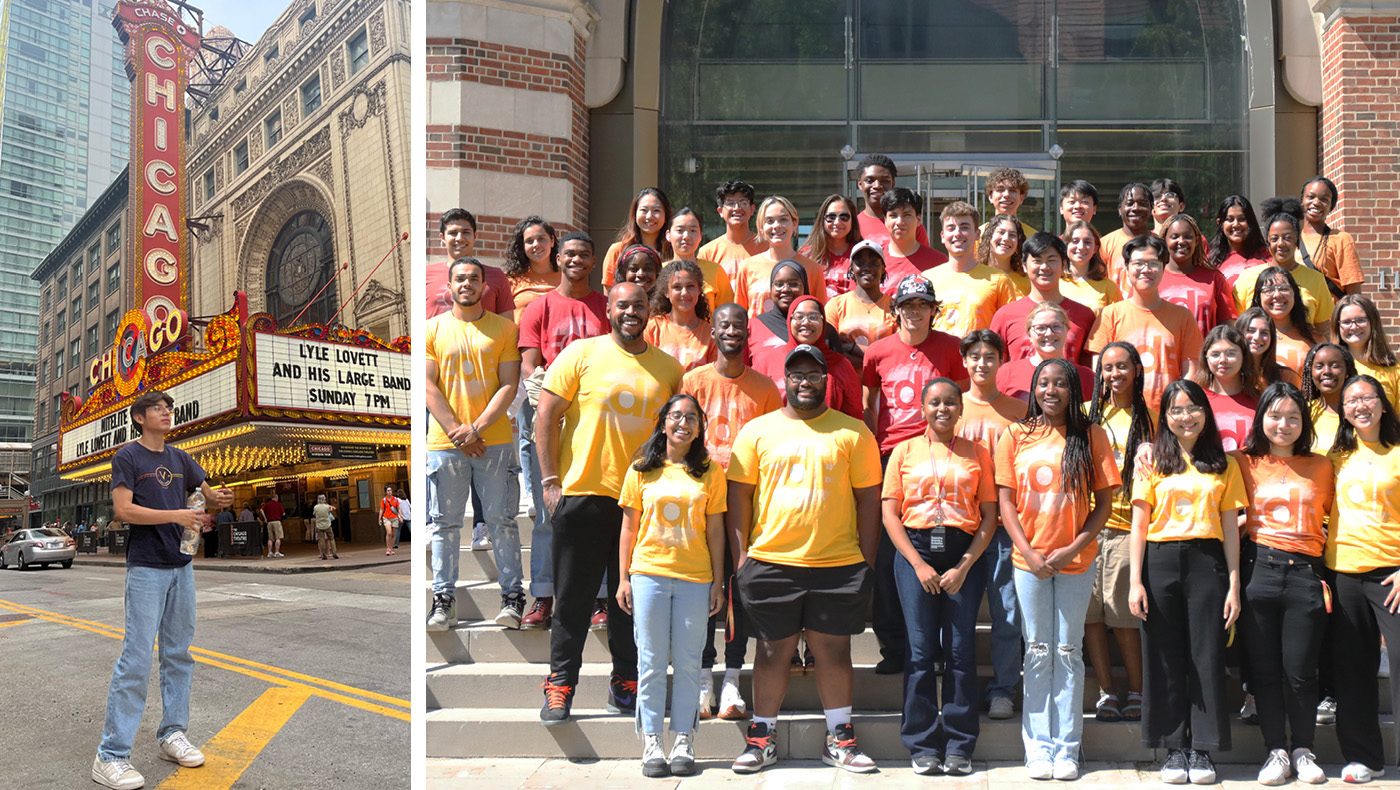Sophomore Juan Barbecho, mathematics and economics and finance double major in the University of Delaware’s Alfred Lerner College of Business and Economics and College of Arts and Sciences recently had the unique opportunity to participate in the University of Chicago’s Expanding Diversity in Economics EDE Summer Institute, a transformative program hosted by the Becker Friedman Institute for Economics (BFI).
The EDE Summer Institute is specifically designed for first- and second-year undergraduates from diverse backgrounds, offering them a chance to develop their skills and expertise in economics.
Barbecho was drawn to the program when he received a mass email from Lerner Assistant Professor of Economics Elizabeth Bayley, one of his economics professors. Bayley highlighted opportunities like being introduced to Stata and intermediate microeconomics, as well as the potential for networking with professors from the University of Chicago, which Barbecho hopes to work with in the future.
“I love that economics is an area where there is huge potential to make positive change in the world. Being able to contribute to bettering people’s lives and inform policy makers on issues they may have never thought of is very inspiring,” Barbecho said.
“This was a terrific opportunity for Juan,” said Lerner Associate Professor of Economics Jens Schubert, who also helped Barbecho with his application. “The program is highly competitive (45 undergraduate students were selected from over 600 applications nationwide), and it provided Juan with opportunities to practice and expand his quantitative skills early in his academic career by learning from the University of Chicago and Becker Friedman Institute faculty.”
The EDE program, which was launched by BFI in 2021, took place from June 8-30 on the UChicago campus. The program’s 45 participants represented 31 universities across 16 states, with 96 percent of them first- our second-year undergraduate students recording an average GPA of 3.8.
The program was a significant opportunity for the students as according to the BFI website, there is little diversity among economics majors compared to other fields. Women account for 28.4 percent of the nation’s economics majors, according to a recent study, while just 14.7 percent of economics majors are Black, Hispanic or Native American.
The website maintains that diversity is important because it can inform research questions and lead to otherwise unanticipated answers, while a broader range of perspectives will enhance the field’s contributions to public policy and society.
During the application process, Barbecho had to provide his academic background, coursework, extracurricular activities and a letter of recommendation. Additionally, he was required to write a candidate statement, in which he expressed his interest in addressing issues related to car-centric infrastructure and its effects on the economies of low-income communities.
“I hope to build my research toolkit. Since I knew I wanted to do research at some point in my college years, I thought this program would be a great first step. By the end of the program I think I will have a solid foundation in the quantitative skills needed to do at least basic research, and I hope it prepares me well for future research projects I may do with UD’s economics faculty,” Barbecho said.
Once accepted into the program, Barbecho traveled to Chicago for the month-long program that ended up exceeding his expectations. “I was surprised at how close I got with my peers at the program,” Barbecho said.
The students began the program with three days of intense quantitative skill-building, including training in Stata programming. They then received two weeks of coursework led by University of Chicago faculty, receiving instruction in microeconomic analysis and introductory econometrics.
Additionally, a data project in small groups allowed participants to select a topic of their choice and hone their data analysis skills in Stata, presenting their findings to the cohort, staff and University of Chicago scholars.
Throughout the program, Barbecho discovered that he had an interest in financial mathematics and envisioned himself pursuing graduate studies in this field to further his skills.
“I’ve gained a lot of invaluable connections with peers from schools across the country. It is gratifying to think that someday I might work with them or study with them as we all have a shared passion for economics and going to grad school.”




